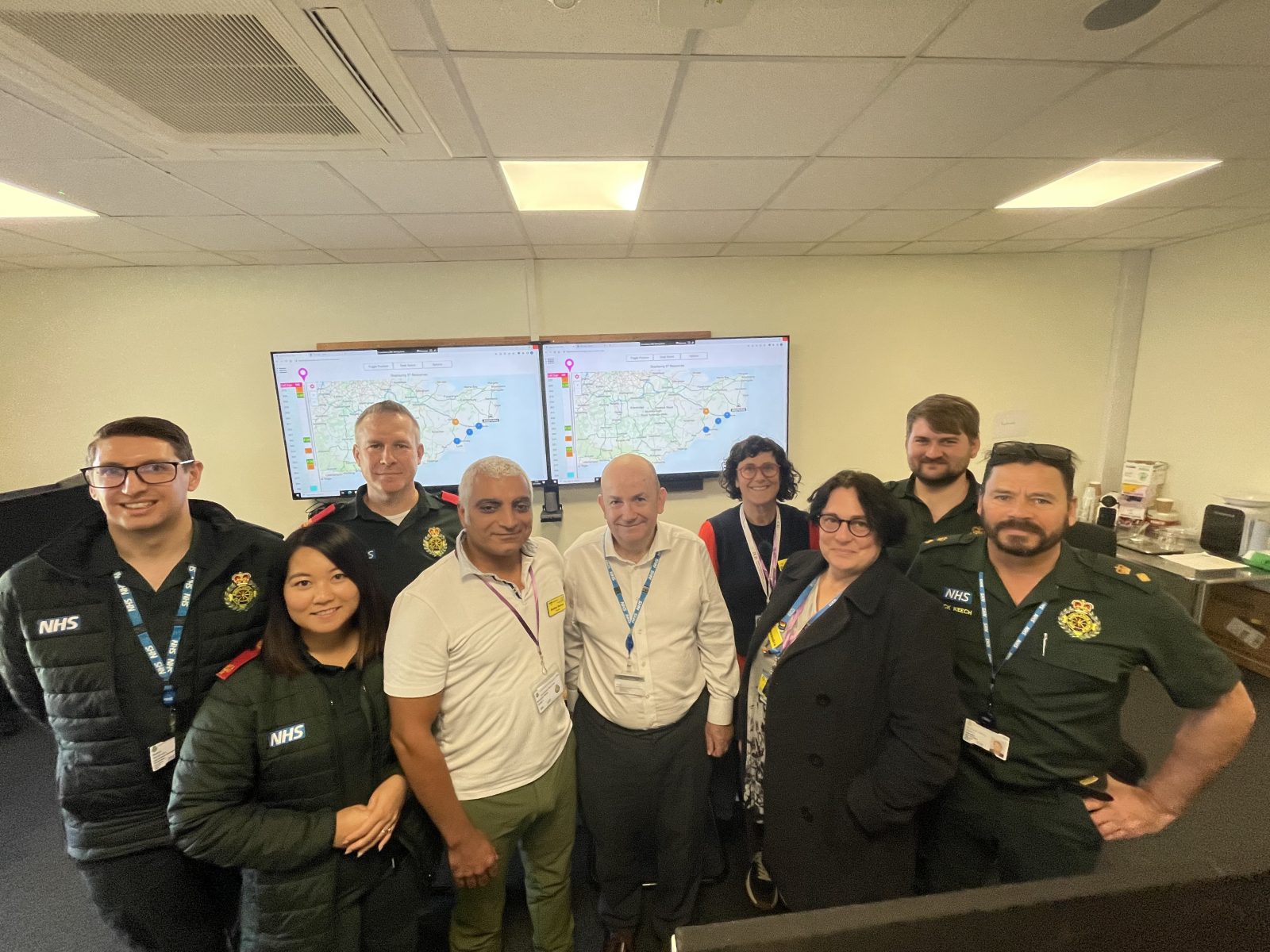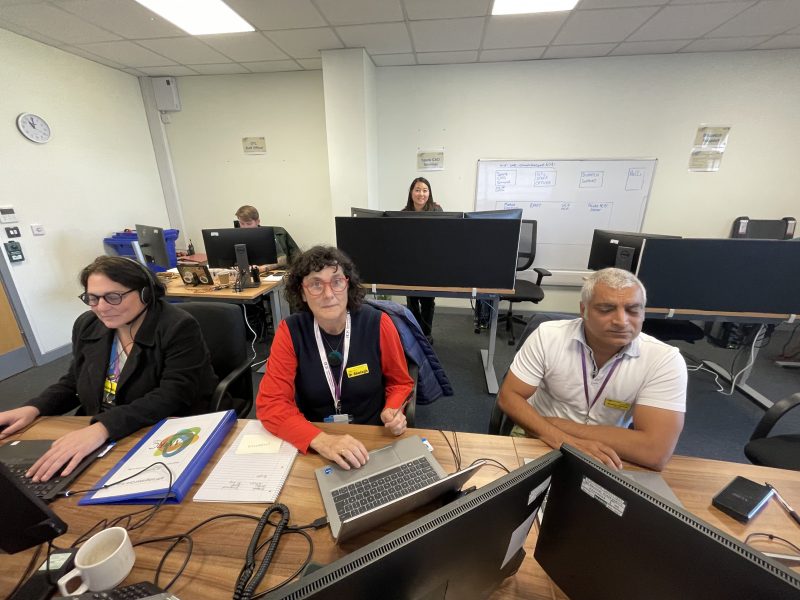
South East Coast Ambulance Service NHS Foundation Trust, (SECAmb), is trialling a new approach to patient care to ensure 999 calls receive the most appropriate response.
Throughout November, Advanced Paramedic Practitioners at SECAmb’s Ashford Operating Unit will lead a clinical hub at the Trust’s Ashford Make Ready Centre.
 The four-week trial will see the paramedics join a multi-discipline team from across the Kent healthcare system including Emergency Department consultants and clinicians from East Kent Hospitals University NHS Foundation Trust and Kent Community Health NHS Foundation Trust.
The four-week trial will see the paramedics join a multi-discipline team from across the Kent healthcare system including Emergency Department consultants and clinicians from East Kent Hospitals University NHS Foundation Trust and Kent Community Health NHS Foundation Trust.
The clinicians, representing SECAmb, hospital, community, frailty and Urgent Treatment Centre teams, will work together to review 999 calls received by the Trust in its Ashford operational area to establish whether an ambulance is the most appropriate response or if the patient’s needs can be better met by other parts of the NHS.
The trial won’t delay a response to SECAmb’s most serious calls but will aim to ensure patients receive the right care in the right place at the right time. It is hoped that the trial will also improve the Trust’s ‘hear and treat’ rate in the area, which sees patients provided with clinical advice over the phone and means ambulances are available for patients presenting with time-critical emergencies.
SECAmb Paramedic and Operating Unit Manager for Ashford, Nick Keech, said: “We hope that the trial will provide valuable information to help guide our recently-launched strategy engagement and inform a more integrated, partnership approach to delivering patient care.
“From feedback from operational colleagues it is clear that our current model of care doesn’t always meet the needs of our patients effectively or efficiently and we were keen to look at a different approach that will benefit both our patients and our operational teams.”
Dr Jonathan McGarvey, joint lead for the frailty home treatment service and a specialist doctor at Kent Community Health NHS Foundation Trust (KCHFT) said:
“We’ve always worked closely with our colleagues in the ambulance service and this is a new way to support people who need urgent help, but who don’t necessarily need to be admitted to an acute hospital. We can support patients through our frailty home treatment service and admission to our virtual ward, where they can receive hospital-level care at home. Or, we can admit them to a community hospital if appropriate. It’s about putting the patients' wishes first and finding the best solution for them.”
Anyone interested in finding out more information and getting involved in SECAmb’s engagement its future strategy can visit: Our Vision and Strategy – NHS South East Coast Ambulance Service (secamb.nhs.uk)
